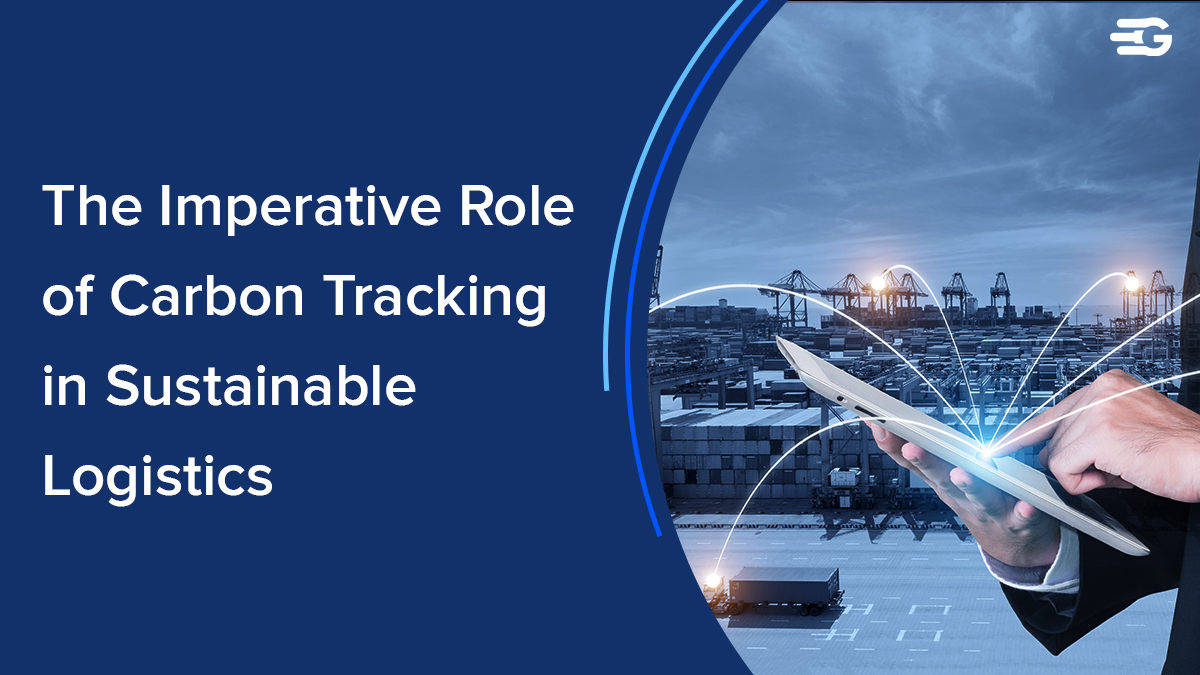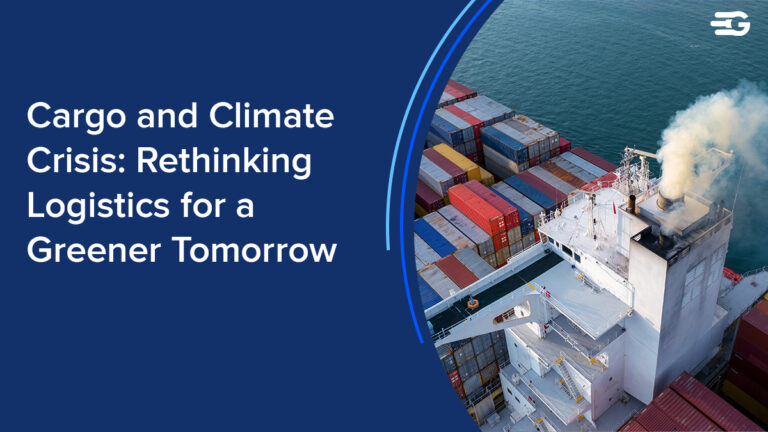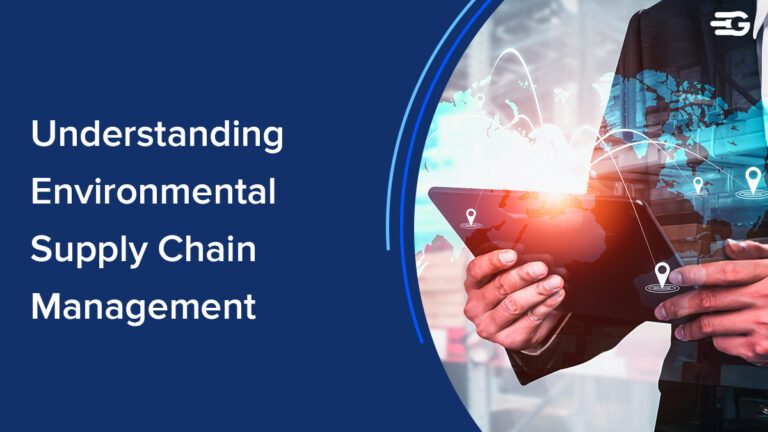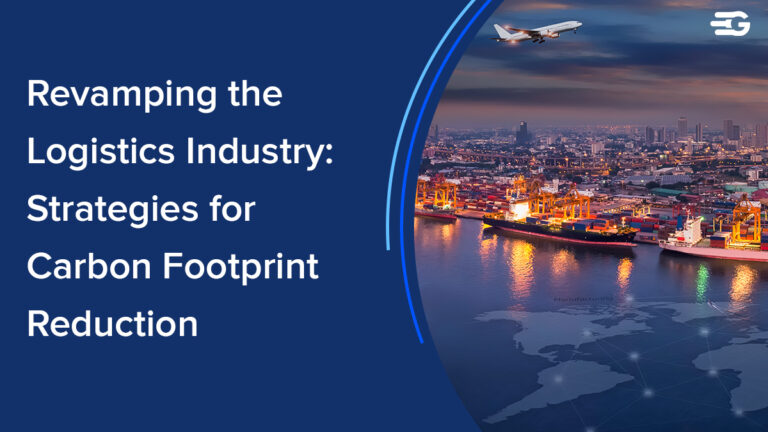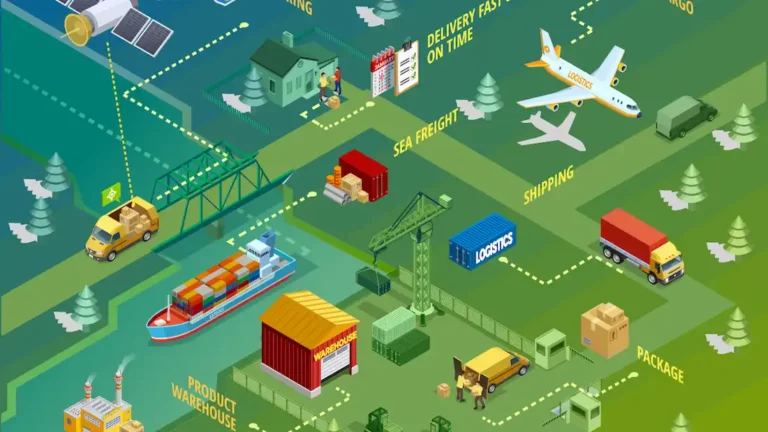The Imperative Role of Carbon Tracking in Sustainable Logistics
Sustainable logistics is a concept that focuses on integrating environmentally friendly practices into the transportation and distribution of goods. It involves optimizing supply chain operations, reducing carbon emissions, and minimizing the environmental impact of deliveries. By implementing sustainable logistics practices, companies can not only reduce their carbon footprint but also contribute to the overall sustainability of the environment.
What is sustainable logistics?
Definition of sustainable logistics
Sustainable logistics can be defined as the process of managing the flow of goods in an environmentally and socially responsible manner. It takes into account various factors such as fuel optimization, recycling, and minimizing greenhouse gas emissions. The aim is to ensure that logistics operations are not only efficient but also sustainable in the long run.
Importance of sustainability in logistics
Sustainability is crucial in the logistics industry due to the significant impact it has on the environment. The logistics sector is responsible for a significant amount of carbon dioxide and other greenhouse gas emissions. By implementing sustainable practices, companies can reduce their environmental impact and contribute to a greener future.
Benefits of sustainable logistics
There are several benefits associated with sustainable logistics. One of the key advantages is the reduction of carbon emissions. By optimizing supply chain operations and adopting fuel-efficient practices, companies can significantly minimize their carbon footprint. This not only helps in reducing environmental pollution but also contributes to cost savings in the long run.
How can logistics be made sustainable?
Implementing sustainable logistics practices
One of the ways to make logistics sustainable is by implementing sustainable logistics practices. This includes using environmentally friendly packaging materials, optimizing routes to reduce fuel consumption, and using energy-efficient vehicles. Additionally, companies can implement waste management systems to promote recycling and reuse.
Optimizing supply chain operations
Another way to make logistics more sustainable is by optimizing supply chain operations. This involves streamlining processes, reducing inefficiencies, and minimizing the use of resources. By adopting advanced technologies and implementing supply chain management systems, companies can improve overall efficiency and reduce their environmental impact.
Reducing carbon emissions in logistics
One of the biggest challenges in logistics is reducing carbon emissions. Companies can achieve this by adopting greener practices such as using alternative fuels and investing in electric vehicles. By actively monitoring and managing carbon emissions throughout the logistics process, companies can significantly reduce their environmental impact.
Start tracking carbon emissions with GoComet
GoComet offers an innovative solution for tracking carbon emissions, enabling businesses to promote sustainable logistics practices. By monitoring and measuring the carbon footprint generated throughout the supply chain, companies can identify areas of improvement and implement strategies to reduce their environmental impact. GoComet’s platform provides real-time data and analytics, allowing organizations to make informed decisions that align with their sustainability goals. With the ability to track carbon emissions, businesses can take proactive steps towards achieving a greener and more sustainable future in the logistics industry.
What are the best practices in sustainable logistics?
Efficient warehouse management
Efficient warehouse management is a crucial aspect of sustainable logistics. Companies can optimize their warehouse operations by implementing automation technologies and using space effectively. By reducing energy consumption and implementing proper waste management systems, warehouses can contribute to sustainability in the logistics industry.
Fuel optimization for greener logistics
Fuel optimization is essential for achieving greener logistics. Companies can adapt fuel-efficient practices such as route optimization, vehicle maintenance, and driver training programs. By reducing fuel consumption, companies can not only reduce their carbon footprint but also save on operational costs.
Implementing reverse logistics for sustainability
Reverse logistics is an important practice for sustainability in the logistics industry. It involves the management of product returns, recycling, and proper disposal of waste. By implementing effective reverse logistics processes, companies can reduce waste and promote recycling and reuse, contributing to a more sustainable supply chain.
How does sustainable logistics impact the environment?
Reducing carbon footprint in logistics
Sustainable logistics plays a crucial role in reducing the carbon footprint in the industry. By optimizing operations and implementing greener practices, companies can significantly reduce their carbon emissions. This leads to a cleaner environment and contributes to the fight against climate change.
Minimizing environmental impact of deliveries
Sustainable logistics focuses on minimizing the environmental impact of deliveries. By adopting fuel-efficient vehicles and optimizing routes, companies can reduce greenhouse gas emissions caused by transportation. This not only contributes to the overall sustainability of the environment but also helps in improving air quality.
Promoting recycling and reuse in logistics
Sustainability in logistics promotes recycling and reuse of materials. Companies can implement waste management systems that encourage the recycling and proper disposal of packaging materials. By promoting recycling and reuse, companies can minimize waste and contribute to a circular economy.
Why should the logistics industry strive for sustainability?
Better reputation and customer satisfaction
Striving for sustainability in the logistics industry can improve a company’s reputation and increase customer satisfaction. Consumers are becoming more conscious of environmental issues, and they prefer to support companies that show a commitment to sustainability. By adopting sustainable practices, companies can attract more customers and build a positive brand image.
Compliance with environmental regulations
The logistics industry is subject to various environmental regulations. By striving for sustainability, companies can ensure compliance with these regulations and avoid potential penalties. By being proactive in addressing environmental concerns, companies can establish themselves as responsible corporate citizens.
Long-term cost savings in logistics
Implementing sustainable practices in logistics can lead to long-term cost savings. By optimizing operations, reducing waste, and minimizing resource consumption, companies can reduce their operational costs. Additionally, the deployment of fuel-efficient vehicles and energy-saving technologies can further contribute to cost savings over time.
How GoComet helps in carbon tracking and sustainable logistics?
GoComet is revolutionizing the logistics industry by providing businesses with a way to track their carbon emissions and make sustainable choices. With the growing concern for the environment and the need to reduce carbon footprints, GoComet offers a solution that not only benefits businesses but also helps in creating a greener and more sustainable planet. By tracking the carbon emissions generated through the transportation of goods, GoComet enables businesses to make informed decisions and opt for sustainable logistics solutions. This not only minimizes their impact on the environment but also improves their reputation as socially responsible organizations.
Our carbon tracking feature is simple yet powerful. With its advanced technology and data-driven analytics, businesses can easily calculate and monitor their carbon emissions throughout the entire supply chain. This allows them to identify areas where emissions can be reduced and make the necessary changes to create a more sustainable logistics process. By offering transparency and actionable insights, GoComet empowers businesses to take charge of their environmental impact and make a positive change.
Moreover, with sustainable logistics solutions, businesses can optimize their transportation routes and reduce unnecessary fuel consumption. By utilizing advanced algorithms and real-time data, GoComet helps in finding the most fuel-efficient routes and modes of transportation. This not only reduces carbon emissions but also leads to cost savings and improved operational efficiency.
In a world where sustainability and climate change are pressing issues, businesses have a responsibility to make conscious choices. GoComet provides them with the tools and technology to do so. By tracking carbon emissions and promoting sustainable logistics, GoComet enables businesses to become more environmentally friendly, reduce their carbon footprint, and contribute to a greener future. Together, we can make a difference and create a more sustainable world.
